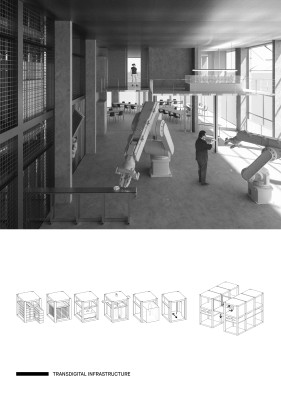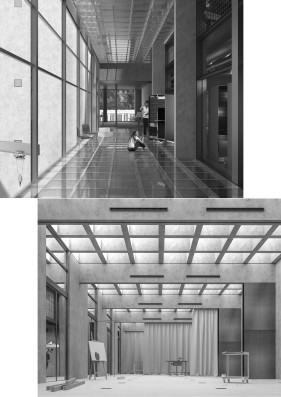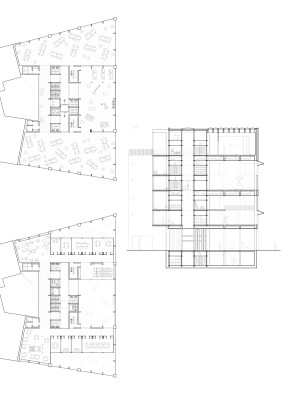TRANSDIGITAL INFRASTRUCTURE
TEAM: Niklas Klein, Magdalena Engert
Germany
Bauhaus-University Weimar
Accelerating the relation of human and technology in office spaces.
Our proposal aims to channel the oppurtunities of technological progress for the future crowd-working society. Essential is the understanding of our design as a public infrastructure. Principles of Open Source, the open display of content, and collaborative working are integral components of our structure. Several layered infrastructures are woven into a shelf, such as the physical exchange and cache of objects, the digital infrastructure, the human circulation and electric, plumbing and air streams. The automated storage system in the center of the shelf guarantees the physical exchange and covers elevator functions. It is directly linked to existing and future logistical infrastructures of the city, such as automated robot and drone mail systems, creating a storage of high fluctation. Similar facilities throughout the city and even the world can specify on various types of work and provide a decentralized network to the crowd, creating possibilities for new models of common property to evolve. The shelf also functions as a local data center, where servers provide heat to the community. The surrounding spaces are interacting with the shelf in different ways, enabling direct production and thinking lines to the crowd network.



